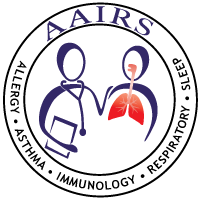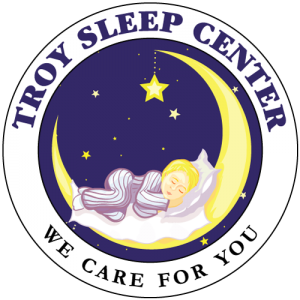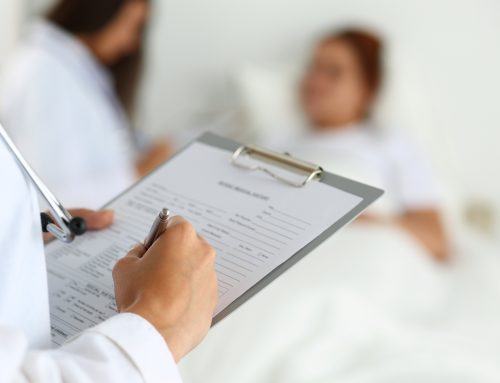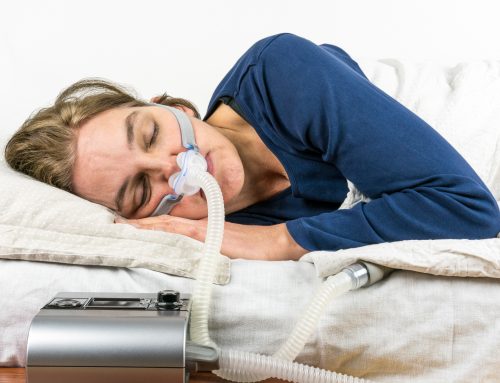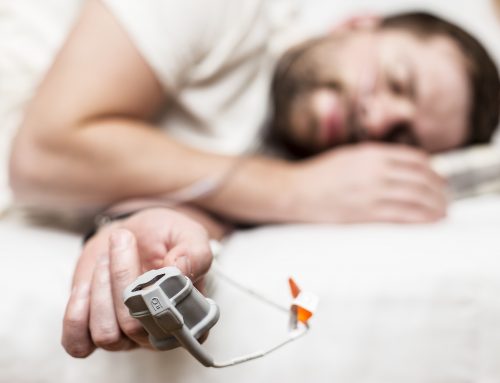Diagnosing sleep disorders can be difficult, which is why it’s incredibly important for patients to see a qualified sleep specialist. Sleep specialists and sleep clinics are able to monitor sleep abnormalities and breathing patterns. Unfortunately, the idea of having to spend the night in an unfamiliar bed in a sleep testing center hooked up to machines is enough of a deterrent to avoid testing for sleep apnea, which means many suffer undiagnosed. That’s why the first line of testing for qualified cases is often home sleep testing. Below, we discuss home sleep testing and other sleep studies and determine if they might be the right choice for you.
Signs and Symptoms of Sleep Apnea
Before deciding if home sleep testing (HST) is warranted, it’s important to know exactly what sleep apnea is and its symptoms. Sleep apnea is a serious sleep disorder in which an individual’s breathing periodically stops during the sleep cycle. The most common form of sleep apnea is known as obstructive sleep apnea (OSA), which occurs when the throat muscles relax and block the airway. OSA causes an individual to repeatedly jolt themselves awake during sleep. This obviously prevents a person from ever entering REM sleep and never allowing the body to truly get a good night’s sleep. Severe OSA obstructs the flow of oxygen to the brain many times during the night which, in turn, is believed a related increase in heart disease, dementia, diabetes type II, weight gain, and many other chronic diseases.
Symptoms of OSA
Since OSA often prevents an individual from getting a good night’s rest, one prevalent symptom of the disorder is constantly feeling tired, agitated, difficulty concentrating and, many times, depressed. Most individuals who suffer from OSA also experience waking up during sleep gasping for air or with a dry mouth. Another ubiquitous symptom is loud and persistent snoring. If you consistently experience any of these symptoms, a home sleep evaluation may be right for you.
The Difference Between Home Sleep Testing and a Clinic Sleep Study
In essence, a home sleep test is a simplified version of a test performed at a sleep clinic, which is also known as a nocturnal polysomnography. The equipment used for a home sleep test is typically less complicated and monitors fewer variables than a sleep lab. Additionally, a home sleep test does not include a person visually monitoring the patient’s sleep patterns. Although a home sleep test is not as complex as a nocturnal polysomnography, it provides enough information needed to make an OSA diagnosis, and has been endorsed by the FAA, DOT and major sleep associations. Furthermore, the biggest advantage to home sleep testing is that the process can be completed quickly and inexpensively in the comfort of the patient’s own home rather than in an unusual location.
What Happens During Home Sleep Testing
On the day of the test, you will likely be asked to maintain your normal daily routine, avoid taking naps and caffeine. You will also likely have to pick up sleep monitoring equipment from your doctor’s office or be delivered by an online mail order site where you will also learn how to set up and operate the equipment. When ready for sleep, simply set up the equipment as instructed and connect the monitoring sensors to yourself. Since you’re operating the device on your own, checking the machine is running properly and collecting the appropriate information will be important. From this point on, your job is easy – simply fall asleep! It may be necessary to do home sleep testing twice in order to confirm the results. In the morning, be sure to follow the instructions for returning the equipment and submitting the test results. A sleep doctor will be able to evaluate your results and provide you with a diagnosis shortly after you send in your results.
How Much Does Home Sleep Testing Cost?
Another benefit to performing home sleep testing is that it is typically less expensive than a test performed at a sleep disorder clinic. A home study usually costs a few hundred dollars, whereas a clinic study can cost thousands of dollars. Most insurance policies will cover the cost of a sleep study if the referring physician properly orders the test and if the patient fits certain criteria.
Still have more questions about sleep apnea and participating in home sleep testing? Contact us today!
